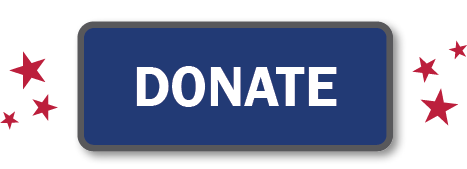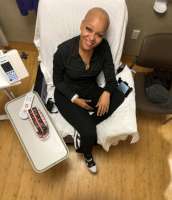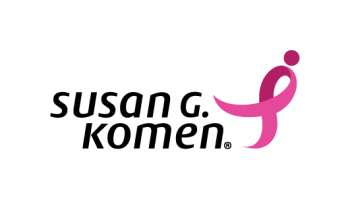For over a year, Jeanelle Adams tried to convince her doctor that something was wrong. “I had leaking from one of my breasts, and it felt heavy,” she said.
Jeanelle’s doctor brushed off the discharge from her breast as eczema. When the creams her doctor recommended didn’t work, she suggested it was from a milk duct. “But my daughter was 6. I hadn’t breast fed in a long time,” Jeanelle said. That’s when she started searching online. “Different things popped up [about] what it could be, like breast cancer. But my doctor said no, I was too young for that. She said, ‘Don’t worry about it. You’re too young.’”
Fifteen months later, Jeanelle felt a lump in her breast. “The lump grew. It was heavy. You could see veins. It just didn’t look right,” she said. Jeanelle went to her doctor’s office. Instead of asking to see the doctor, she asked the receptionist for a referral to get a mammogram.
Once Jeanelle had the mammogram, she was sent for an ultrasound, then a biopsy. “I remember thinking ‘Oh my God,’” Jeanelle said. “I knew something was going on. I was right.” Jeanelle was diagnosed with stage 3 ductal triple negative breast cancer. She was 33, with no family history.
Black women are more likely to be diagnosed at a younger age, at later stages and with more aggressive types of breast cancer than white women. They also experience higher rates of death from breast cancer due to a combination of factors including things such as barriers to early diagnosis and discrimination, both of which Jeanelle experienced. These inequities often require Black patients to advocate strongly for themselves to get the care they need.
“My doctor was not listening to me at all. She was saying to herself, this girl does not know what she’s talking about, she can’t go online and figure this out,” said Jeanelle. “I think a lot of that was based on how I look, where I come from. And that I’m young. That’s what she said to me so many times – it’s nothing to be worried about. You’re young.”
She went back to see her original doctor once, after her diagnosis. “I was in treatment when I went. She asked what was wrong, and I said I was in chemotherapy. I had breast cancer, and she had told me I was too young for this to happen. She grabbed my hand and said she was so sorry. I told her I hoped this would change the way she talked to some of her patients, especially her younger patients. It felt good to say all of that to her. Somebody like me, somebody who looks like me, can be sick.”
Jeanelle started treatment in September 2022. Right away, she bonded with her care team. “My team has been great. Everyone from my breast surgeon to oncologist to my nurse,” she said. “It’s pretty diverse, within age and color of skin and where they’re from. It’s a really good dynamic.“
Having a strong team helped Jeanelle through the difficult aspects of her treatment. “Chemo was terrible. There’s so much that comes with it. There’s fertility loss, it messes with your teeth, and your hair, and your fingernails,” she said. Jeanelle then had a double mastectomy. “The first two weeks after surgery were the hardest. The pain was really bad.” Jeanelle is now on immunotherapy. She has expanders in and is hoping to undergo reconstruction early next year.
While Jeanelle did have genetic testing, she did not test positive for any gene mutation that would predispose her to developing breast cancer. But her diagnosis at 33 has a silver lining for her young daughter. “She’ll start having mammograms when she’s 23, so she will hopefully not ever find herself in a situation like I was in.”
The fact that it took so long for Jeanelle to get someone to listen to her concerns has altered how she lives her life – and the advice she gives others who find themselves in a similar situation. “You are the captain of your own ship. You are in charge, and you make the decisions. Go around whomever you need to go around to get what you need, and don’t feel bad about it,” Jeanelle said. “If you need a second opinion or need to change your doctor, call your insurance. Advocate for yourself. Always understand that this is your journey. No one else’s.”
At the end of the day, it’s important for Jeanelle to share her story. “I’m not the only person going through this at my age. I’m not the only mom. I’m not the only person out here, living life, you know?” she said. “I’m never going to be done with breast cancer because it’s a part of me. This is my journey. But I’m not alone. And neither are you.”
If you or someone you care about needs support as a Black patient, learn more about Susan G. Komen’s program Stand for H.E.R. – a Health Equity Revolution, a program developed to remove barriers that prevent Black communities from accessing high-quality breast care and services, by visiting https://komen.org/standforher.





